Sibling estrangement can be really hard to deal with, however, this is a harsh reality for many people out there. If you are someone who is dealing with sibling estrangement, then you have come to the right place. This post is going to talk about many important things when it comes to estranged siblings and the whole world of sibling estrangement.
KEY POINTS
- Some feel judged, embarrassed, and humiliated that they can’t sustain a relationship with a sibling.
- One common misperception is that no one else struggles to maintain a relationship with a sibling.
- Some estranged siblings wonder, “Is there something wrong with me because I can’t get along with my brother or sister?”
For years, I never told anyone how my estrangement from my only brother had created a gaping hole in my life. My secrecy arose from one simple but powerful reason: I feared I would be judged.
Most people project onto others their notions of what a family should look like—a pretty picture that echoes throughout our culture. From Shakespeare to sitcoms, family bonds are idealized. I found it humiliating that I couldn’t negotiate some sort of relationship with my own brother. How could I explain the experience to someone else when I didn’t understand it myself?
Making matters worse, I didn’t want to admit that my family experienced this level of dysfunction. Others who are estranged often feel the same way; they suffer in silence, rarely discussing the topic, not seeking support groups or therapy that might help them feel less alone.
The stigma, alienation, and silence surrounding this painful topic create fertile ground for misperceptions about sibling estrangement. Here are eight.
Related: 5 Moments When You Are Most At Risk of Sibling Estrangement
8 Things People Need to Understand About Sibling Estrangement
1. I’m the only one who is estranged from my sibling.
Those who are estranged often believe that nobody else has a rough or chaotic relationship with a sibling. Psychotherapist Ali John Chaudhary, who specializes in this topic and has created several resources for estranged siblings, says that many who are cut off from relatives are black sheep—family members who are treated differently, marginalized, or excluded, and typically blamed for whatever goes wrong in the family.
“It helps to recognize that others struggle, too,” Chaudhary says. “In fact, studies show that the number is as high as one in three sibling relationships that are strained or estranged.”
2. There must be something wrong with me if I can’t get along with my sibling.
Many factors can sour a sibling relationship: a lack of shared interests, power struggles, personality disorders, just plain bad chemistry. No matter how serious or trivial the roots, sibling rejection ripples into many areas of life and identity.
It can damage your sense of who you are, how you see your friendships and other social relationships, your self-esteem, your ability to trust, even your physical well-being. One of Chaudhary’s mantras is, “I am so much more than what my sibling thinks of me.”
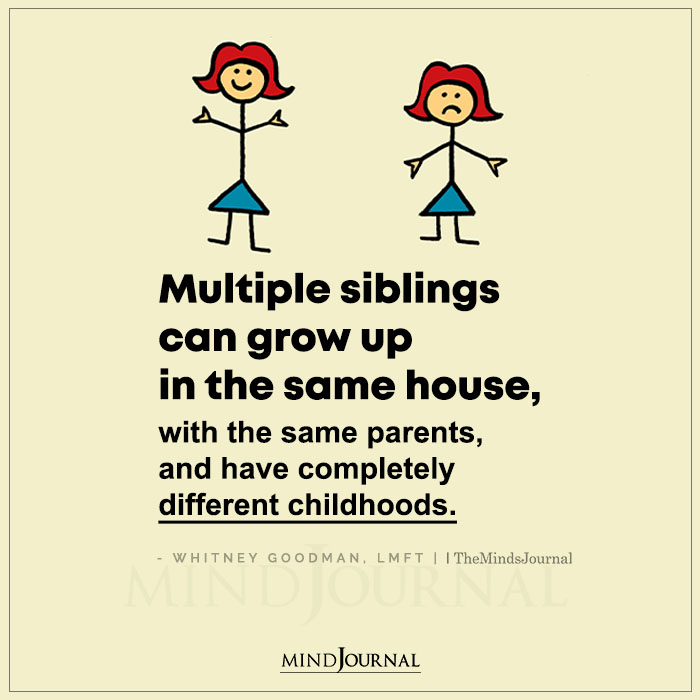
3. Family always comes first.
Family does not come first when it’s toxic. Instead, prioritizing boundaries and a sense of security is vital. You aren’t obligated to do everything for the sake of the family if you run the risk of eroding yourself. Chaudhary emphasizes that no one has the right to take you away from you.
4. I’m totally responsible for my sibling relationship.
Those who are deeply empathic often hold this belief. Yet a sibling may be concerned only with his or her own issues, insecurities, and attempts to dominate and gain power, especially if he or she is narcissistic. Assuming full responsibility often leads to enabling.
5. Things will be different the next time we get together.
There’s a label for this misperception: “Euphoric recall” is a state in which people remember the past through “rose-coloured glasses,” exaggerating positive experiences while suppressing the negative side. This feeds the notion that things will somehow improve, even though that’s unlikely.
Chaudhary says it’s important to create a plan when you expect to see an estranged sibling. Doing something different could improve the encounter; optimism alone isn’t enough.
6. I need to get along with my sibling for my parents’ sake.
Even if you must spend time with your sibling, beware of neglecting your own needs. If you do, you run the risk of becoming a people pleaser. There may be times when you choose to buy peace by accommodating.
However, doing so repeatedly can make you an enabler. Failing to set boundaries—for your parents’ or anyone else’s sake—gives your brother or sister power over you.
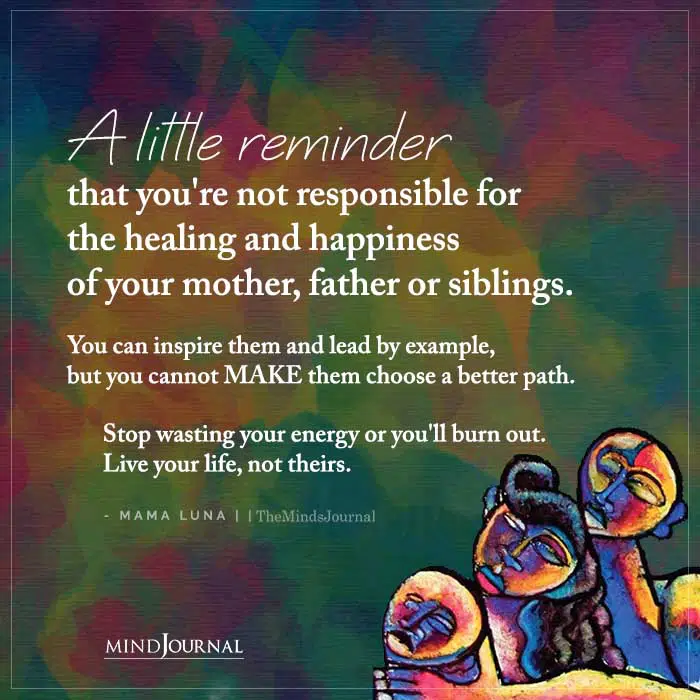
7. I can’t be mourning a living person.
Impossible as it seems, we often grieve for the living. A sibling’s conscious choice to excise you from their life can be more devastating than mourning the dead. Death is final; the door has closed on that relationship.
With estrangement, there’s often an enduring hope that things might change. “Complicated grief” is marked by intense yearning, longing, or emotional pain; frequent, preoccupying thoughts and memories of the absent person, and an inability to accept the loss. I call it mourning the living.
Related: 5 Ways That Family Estrangement Can Inflict Lifelong Harm
8. Only family can give me a true sense of belonging.
Creating close, healthy relationships with others outside the family nurtures a sense of belonging. “Voluntary kin can serve as excellent sources of support and fulfil the roles we associate with family,” says Kristina Scharp, an assistant professor and director of the Family Communication and Relationships Lab at the University of Washington.
“Many people have a difficult time separating the idea of family from biology and law. Yet there is nothing inherent about biology or the law that guarantees a happy or satisfying sibling relationship.”
Fern Schumer Chapman is the author of several books, including Brothers, Sisters, Strangers and The Sibling Estrangement Journal. She offers one-on-one coaching sessions to those struggling with sibling estrangement issues. Contact her at fernschumer@gmail.com.
Written By Fern Schumer Chapman Originally Appeared On Psychology Today
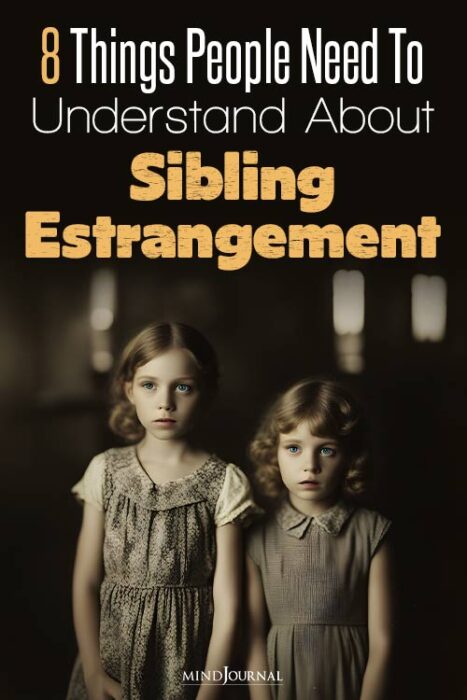
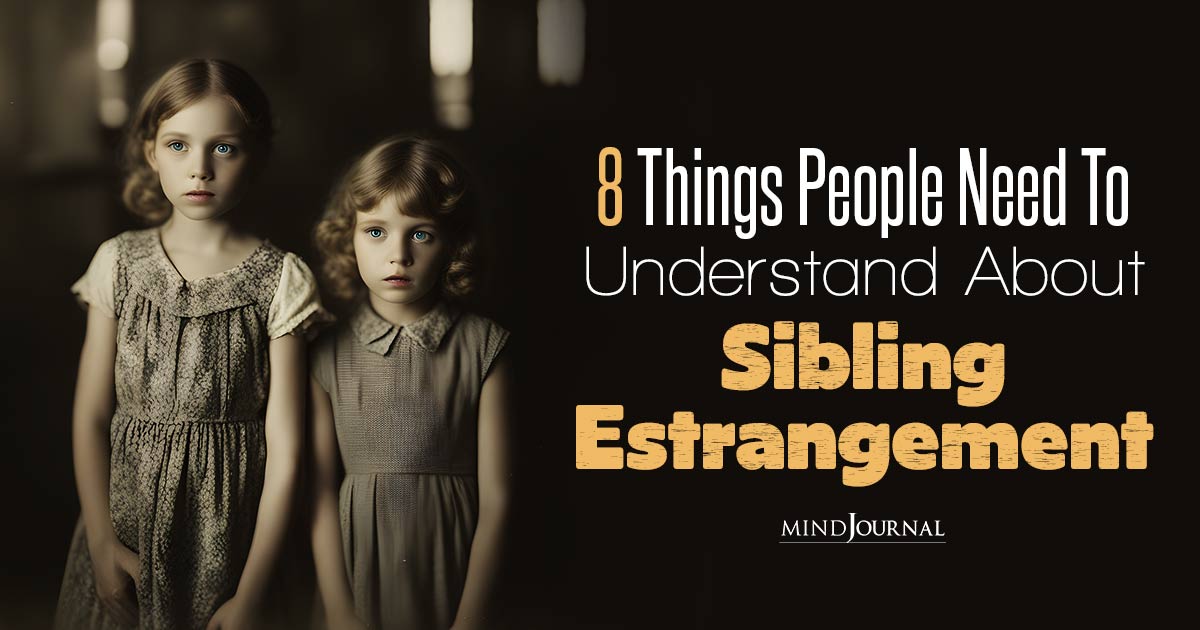
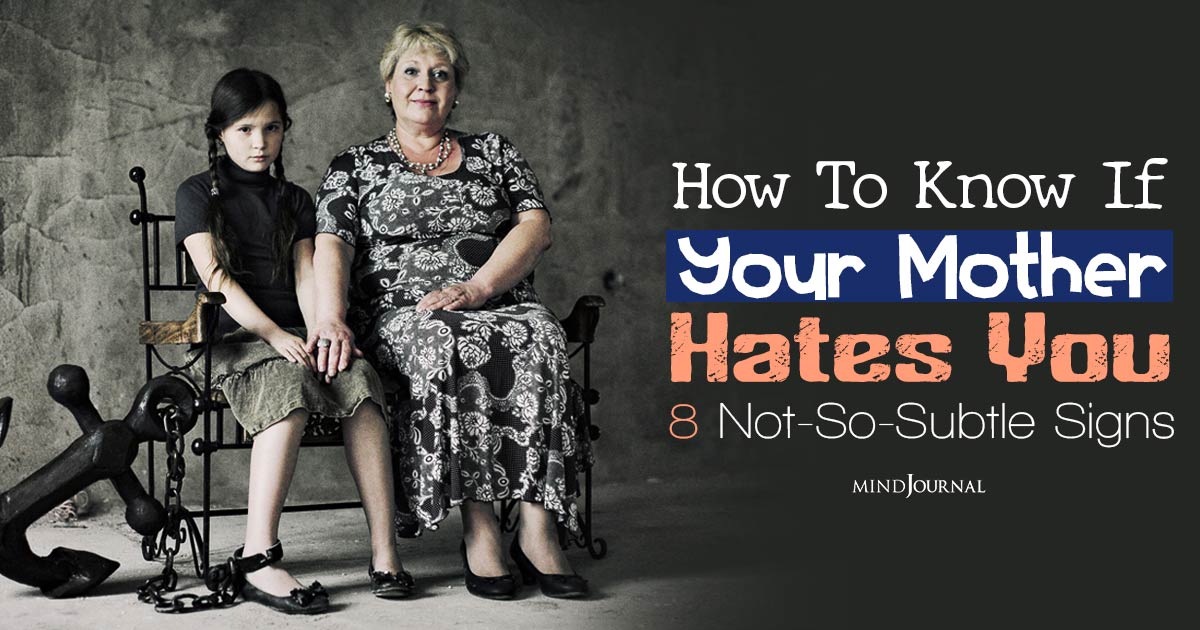





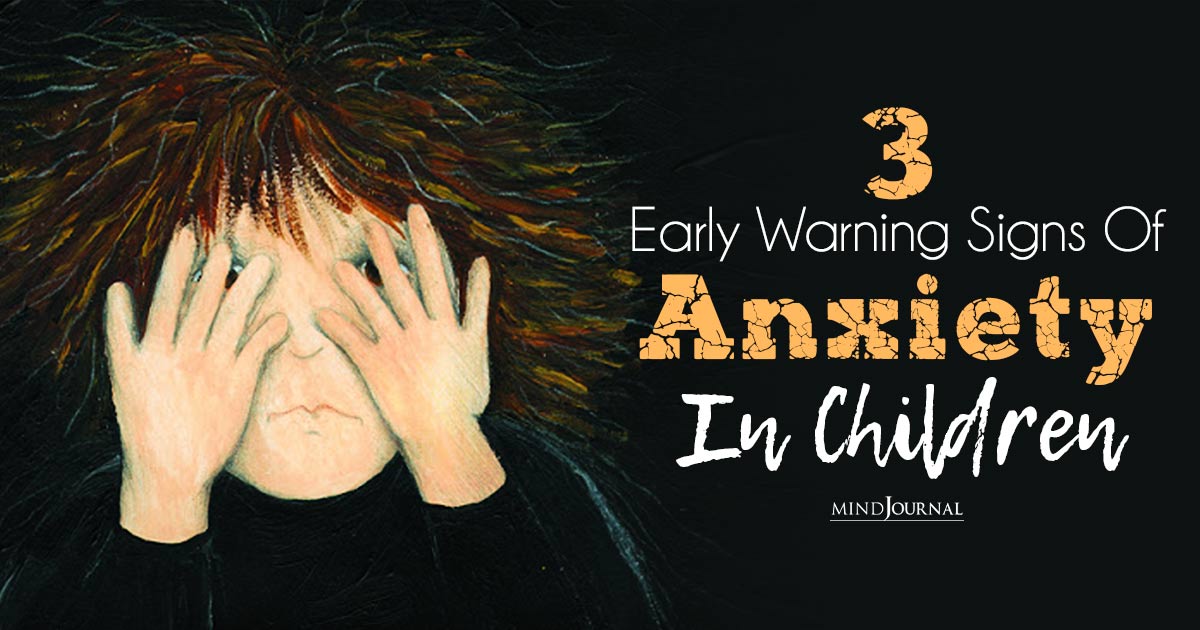
Leave a Reply
You must be logged in to post a comment.